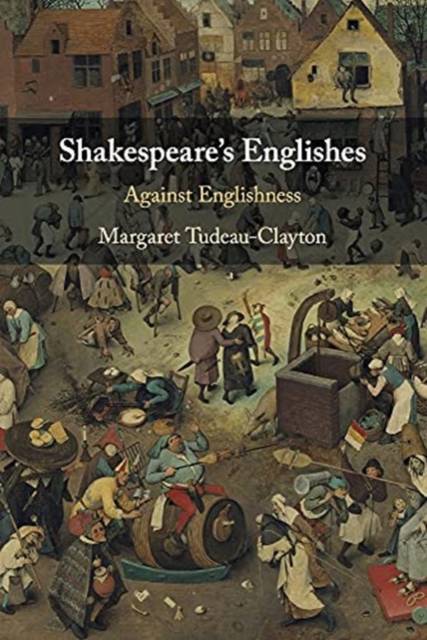
Door een staking bij bpost kan je online bestelling op dit moment iets langer onderweg zijn dan voorzien. Dringend iets nodig? Onze winkels ontvangen jou met open armen!
- Afhalen na 1 uur in een winkel met voorraad
- Gratis thuislevering in België vanaf € 30
- Ruim aanbod met 7 miljoen producten
Door een staking bij bpost kan je online bestelling op dit moment iets langer onderweg zijn dan voorzien. Dringend iets nodig? Onze winkels ontvangen jou met open armen!
- Afhalen na 1 uur in een winkel met voorraad
- Gratis thuislevering in België vanaf € 30
- Ruim aanbod met 7 miljoen producten
Zoeken
€ 60,95
+ 121 punten
Uitvoering
Omschrijving
Whose English is 'true' English? What is its relation to the national character? These were urgent questions in Shakespeare's England just as questions of language and identity are today. Through close readings of early comedies and history plays, this study demonstrates how Shakespeare resists the shaping of ideas of the English language and national character by Protestant Reformation ideology. Tudeau-Clayton argues this ideology promoted the notional temperate and honest citizen, plainly spoken and plainly dressed, as the normative centre of (the) 'true' English. Compelling studies of two symmetrical pairs of cultural memes: 'the King's English' versus 'the gallimaufry' and 'the true-born Englishman' versus the 'Fantastical Gull', demonstrate how 'the traitor' came to be defined as much by non-conformity to cultural 'habits' as by allegiance to the monarch. Tudeau-Clayton cogently argues Shakespeare subverted this narrow, class-inflected concept of English identity, proposing instead an inclusive, mixed and unlimited community of 'our English'.
Specificaties
Betrokkenen
- Auteur(s):
- Uitgeverij:
Inhoud
- Aantal bladzijden:
- 255
- Taal:
- Engels
Eigenschappen
- Productcode (EAN):
- 9781108725460
- Verschijningsdatum:
- 30/09/2021
- Uitvoering:
- Paperback
- Formaat:
- Trade paperback (VS)
- Afmetingen:
- 152 mm x 229 mm
- Gewicht:
- 344 g

Alleen bij Standaard Boekhandel
+ 121 punten op je klantenkaart van Standaard Boekhandel
Beoordelingen
We publiceren alleen reviews die voldoen aan de voorwaarden voor reviews. Bekijk onze voorwaarden voor reviews.











